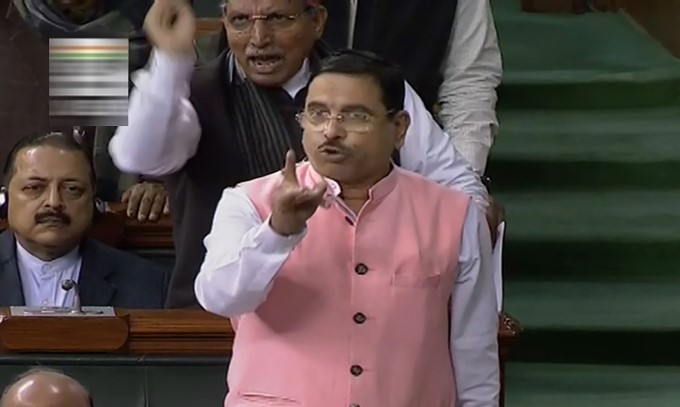Parliament Winter session to take place from December 4-22

Parliament Winter session to take place from December 4-22
Parliamentary Affairs Minister Pralhad Joshi recently announced the dates for the Winter Session of Parliament in 2023. He took to X, formerly known as Twitter, to inform the public about the upcoming session, which is scheduled to commence on December 4th and conclude on December 22nd. During this period, there will be a total of 15 sittings, spread over the course of 19 days.
In his statement, Minister Joshi expressed his enthusiasm and optimism for the upcoming Winter Session. He highlighted the significance of this parliamentary period, emphasizing the importance of discussions on various aspects of Legislative Business. Additionally, he underscored the potential for addressing other critical items on the agenda, suggesting that the Winter Session would serve as a platform for constructive debates, deliberations, and decision-making processes crucial to the functioning of the government and the nation at large.
With the Winter Session of Parliament being a key feature of the legislative calendar, the Minister’s announcement drew attention to the anticipated engagement of lawmakers, policymakers, and stakeholders in addressing pertinent issues and formulating strategies for the nation’s progress and development.
The Ethics Committee’s report on the ‘cash-for-query’ allegations involving TMC MP Mahua Moitra is expected to be a significant agenda item for discussion during the upcoming Winter Session of the Lok Sabha. This report holds vital importance as it serves as the foundation for any further action against the accused member.

The report’s presentation in the Lok Sabha during the session signifies the culmination of the committee’s investigation and deliberations on the alleged misconduct. It is crucial for the House to thoroughly examine and endorse the findings of the report before any suggested disciplinary measures, such as expulsion, can be implemented as recommended by the committee.
This development underscores the critical role of ethical conduct and integrity within the parliamentary system, highlighting the imperative for upholding transparency, accountability, and probity in public office. The forthcoming presentation of the Ethics Committee’s report in the Lok Sabha is anticipated to stimulate substantive debates and deliberations, reflecting the commitment of the legislative body to uphold the highest standards of ethical governance and parliamentary decorum.

The upcoming Winter Session of Parliament is poised to witness crucial deliberations on three significant bills, which seek to replace the Indian Penal Code (IPC), Code of Criminal Procedure (CrPC), and the Evidence Act. The standing committee on Home, having recently approved these reports, has paved the way for the comprehensive consideration of these bills during the session.
The proposed replacement of these fundamental legal frameworks reflects a significant step towards modernizing and streamlining the country’s legal system. It signals a concerted effort to align the legislative framework with contemporary societal dynamics, technological advancements, and evolving legal paradigms. The deliberations on these bills are expected to involve thorough scrutiny and constructive discourse, considering their far-reaching implications for the Indian legal and judicial landscape.
The standing committee’s endorsement underscores the extensive scrutiny and careful evaluation of the proposed reforms, emphasizing the commitment to ensuring the integrity, efficacy, and accessibility of the Indian legal system. The upcoming parliamentary discussions on these bills are poised to be instrumental in shaping the future trajectory of the Indian legal framework, with potential implications for the administration of justice and the protection of individual rights and liberties.
The bill concerning the appointment of the Chief Election Commissioner (CEC) and Election Commissioners (ECs) is a significant legislative proposal that has garnered considerable attention and debate in Parliament. Originally introduced during the Monsoon session, the government’s decision to defer its passage during a subsequent special parliamentary session, owing to opposition and resistance from former chief election commissioners, underlines the complexity and sensitivity of the issue at hand.
The primary objective of the bill is to elevate the status of the CEC and ECs, aiming to align their positions with that of the cabinet secretary within the administrative hierarchy. Currently, the CEC and ECs hold a status equivalent to that of a Supreme Court judge. The proposed elevation seeks to reinforce the significance of their roles and responsibilities in upholding the democratic fabric of the country and ensuring the integrity of the electoral process.
The debates surrounding this bill are likely to revolve around the implications of granting a status equivalent to the cabinet secretary to the CEC and ECs, along with the potential ramifications on the functioning of the Election Commission and its independence. The discussions are anticipated to delve into the intricate balance between institutional autonomy and governmental oversight, underscoring the need to safeguard the sanctity of the electoral process while upholding the principles of transparency and accountability in governance.




